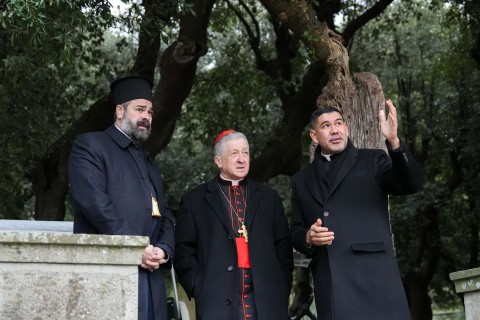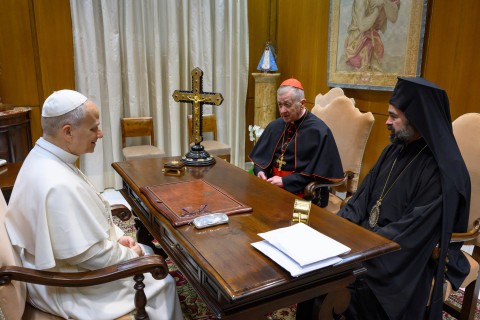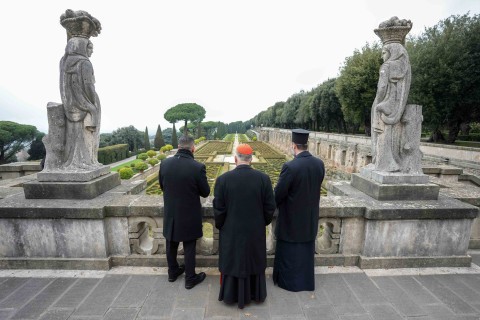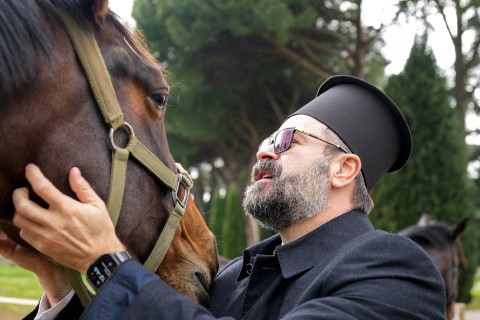Browsing News Entries
The Catholic Kerouac
Posted on 03/5/2026 07:00 AM (Word on Fire)
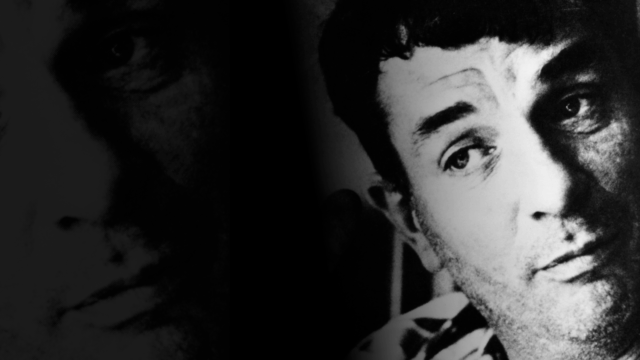
Revered as a major figure in 1960s counterculture, he always identified as a social and political conservative informed by his lifelong love for Catholicism.
Thursday, March 5, 2026
Posted on 03/5/2026 00:01 AM (Word on Fire)

Friends, today’s Gospel reading is the story of the poor man Lazarus, who sat outside the door of a rich man and “would gladly have eaten his fill of the scraps that fell from the rich man’s table.”
A Confession of the Legendary Lou Holtz
Posted on 03/4/2026 20:00 PM (Word on Fire)
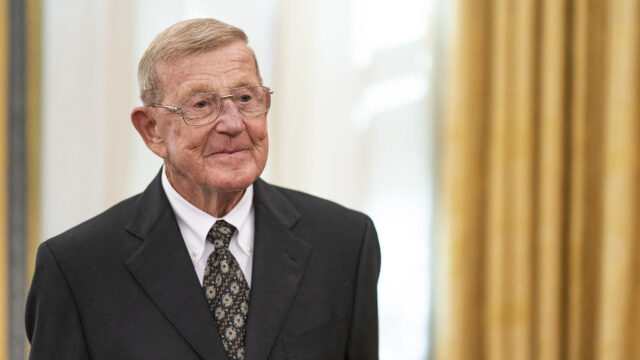
I pray he has received an extraordinary reward and the ultimate championship victory.
A Sense of Home: Chesterton, Berry, and a Thoughtful Environmentalism
Posted on 03/4/2026 10:00 AM (Word on Fire)

Catholics today, especially the young, are realizing that only in the Chestertonian tradition of home can the fullness of Catholic social teaching be realized.
Church can teach what's at stake when nations choose war, not peace, cardinal says
Posted on 03/4/2026 09:30 AM (USCCB News Releases)
CASTEL GANDOLFO (CNS) -- In a fractured world threatened by war, Christians can strengthen their bonds of unity to show the world that peace is possible, Cardinal Blase J. Cupich of Chicago said.
Leaders in the Catholic Church also "need to make sure people understand what's at stake when we opt for war and the consequences that result," he told Catholic News Service March 2.
"I think that church leaders need to pastor our people, giving them a voice about what are the principles from a moral dimension when it comes to pursuing peace, and what should be kept into consideration as we see conflicts in some way trying to be resolved by acts of war, wars that seem to be a choice rather than something that is a matter of necessity," he said.
Cardinal Cupich spoke to CNS during a special visit to the papal farm and the Borgo Laudato Si' center in the papal gardens in Castel Gandolfo. He was taking part in an ecumenical pilgrimage together with Metropolitan Nathanael, who presides over the Greek Orthodox Metropolis of Chicago, to celebrate the 1,700th anniversary of the Council of Nicaea.
The two Christian leaders traveled from the Windy City to Istanbul to meet with Orthodox Ecumenical Patriarch Bartholomew of Constantinople and then on to Rome to visit key Christian sites and to meet with Pope Leo XIV.
"There'll be three people from Chicago: the pope, Cardinal Cupich and myself," Metropolitan Nathanael told CNS. "We will have a lot to talk about when we meet," though he was unsure about admitting to the pope -- a White Sox fan -- that he is a Yankees fan.
Before meeting the pope March 4, Cardinal Cupich and the metropolitan spent half a day March 2 at the papal gardens and the Borgo Laudato Si' zero-environmental-impact complex devoted to promoting Pope Francis' teachings on caring for creation.
The trip offers an opportunity "to strengthen the bonds of unity between our churches," especially at a time when the world seems to be so fractured by war and conflict, and "to announce to the world that peace is something we should all embrace," Cardinal Cupich said.
"It's an opportunity for us as well to double down on the importance of working together so that humanity can all flourish in a world in which there is peace," he said, adding that coming together at the Vatican-run center dedicated to promoting integral ecology, sustainability and a circular and generative economy was a good place to emphasize that call.
At Borgo Laudato Si', he said, "we see firsthand how we are one with all of God's creation, and that we live on this tiny speck of cosmic dust called Earth, in which we all are responsible for making sure it is a place that's a home, a common home for all of us."
Metropolitan Nathanael said, "Looking around the beauty of the grounds, we see what can occur when there's synergy, not only between God and human beings, but amongst human beings."
The Greek Orthodox leader, who is based in Chicago, presides over 58 parishes and two monastic communities in six U.S. states.
"I want to encourage all of our people -- Catholic, Orthodox and even nonbelievers -- to do all they can to find common ground among ourselves as children of God, to love God with all our heart and all our mind and all our soul, and to also love our neighbor," he said. "It's important for us to not just coexist, but to find ways to come closer to God and to one another."
Born in Thessaloniki, Greece, the metropolitan said he felt at home during a tour of the papal farm and saw the donkeys -- which provide milk to pediatric patients -- and four horses leisurely munching on a hill of clover.
While one chestnut horse happily bonded with the metropolitan, the purebred white Arabian horse named "Proton" skittishly avoided his orbit.
Cardinal Cupich and Metropolitan Nathanael also brought freshly-cut flowers grown at the papal farm with them to leave and pray at the tomb of Pope Francis in Rome's Basilica of St. Mary Major.
Pope Leo visited and inaugurated the center in Castel Gandolfo Sept. 5, 2025. U.S. Father Manuel Dorantes, a Chicago priest, has been the administrative-management director of the Laudato Si' Center for Higher Education since Dec. 1, 2024, when Pope Francis appointed him to a four-year term.
Church is holy by Christ's presence, not human perfection, pope says
Posted on 03/4/2026 09:30 AM (USCCB News Releases)
VATICAN CITY (CNS) --The Catholic Church is both a community made up of fragile and limited human beings and a divine reality, Pope Leo XIV said at his weekly general audience.
The pope continued his series on the Second Vatican Council March 4 in St. Peter's Square, emphasizing one of its principal documents, the Dogmatic Constitution on the Church, "Lumen Gentium," which examines the nature and identity of the Church.
He said the Church is "a community of men and women who share the joy and struggle of being Christians, with their strengths and weaknesses, proclaiming the Gospel and becoming a sign of the presence of Christ who accompanies us on our journey through life."
However, he added, it also has a "divine dimension." Its divine nature "does not consist in an ideal perfection or spiritual superiority of its members, but in the fact that the Church is generated by God’s plan for humanity, realized in Christ," he said.
As proof of this coexistence, Pope Leo pointed to the life of Jesus Christ to illustrate the two dimensions of the Church. People were moved by his humanity, the sounds of his voice, as well as his message.
"Those who decided to follow him were moved precisely by the experience of his welcoming gaze, the touch of his blessing hands, his words of liberation and healing," the pope said. "At the same time, however, by following that man, the disciples opened themselves to an encounter with God. Indeed, Christ’s flesh, his face, his gestures and his words visibly manifest the invisible God."
It is through this humanity, through the struggles and fragility of the faithful that Christ's presence is manifested, the pope said.
"This is what constitutes the holiness of the Church: the fact that Christ dwells in her and continues to give himself through the smallness and fragility of her members," he said.
Pope Leo said this dichotomy is quintessential of God's love, making himself visible through the weakness of his creation and "continuing to manifest himself and to act." The faithful are called to act through communion and charity among all.
"Let us strive to be authentic witnesses of the love of Christ so that all can recognize in us and among us the charity that characterizes true Christians and builds up the Church," the pope said in his greetings to English-speakers.
Memories of an Inevitable Occurrence: George Saunders’s ‘Vigil’
Posted on 03/4/2026 07:00 AM (Word on Fire)

What are we really after? Can we relate meaningfully with the afterlife while we still live?
Thirsting for God
Posted on 03/4/2026 05:00 AM (Word on Fire)
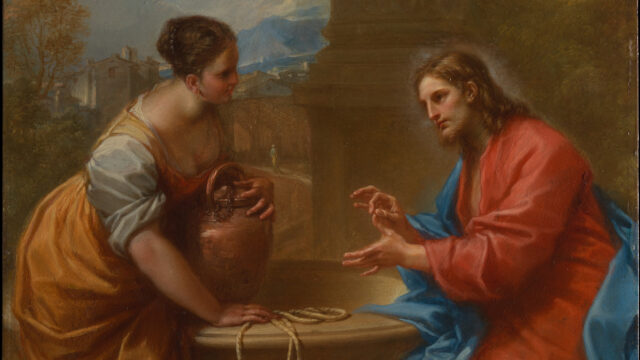
Friends, on this Third Sunday of Lent, we hear the story from John’s Gospel of the woman at the well—a kind of master class in evangelization.
Wednesday, March 4, 2026
Posted on 03/4/2026 00:01 AM (Word on Fire)

Friends, in today’s Gospel, the mother of James and John asks Jesus on their behalf to place them in high places in his kingdom.
Visitor breath, sweat and climate change prompt work on Sistine Chapel masterpiece
Posted on 03/3/2026 09:30 AM (USCCB News Releases)
VATICAN CITY (CNS) -- When millions of visitors flock to the Sistine Chapel each year, their seemingly invisible breath and sweat are slowly leaving a mark on this Renaissance masterpiece, according to Vatican Museums officials.
After 30 years since the chapel's last big renovation, the director of the Vatican Museums, Barbara Jatta, said the impact of five to six million visitors a year has created a white film over different surfaces in the chapel. The largest damage was found on Michelangelo's famous fresco of the Last Judgment.
She said the increased accumulation of residue from human sweat and breath on the artwork may be linked to climate change, as Italy has experienced warmer temperatures in recent years.
"Every day, we check the Sistine Chapel, but last year, we realized that there is a layer of salt," she told the press invited to the chapel Feb. 28. "It's something that probably is due to the presence of the people, even if we have a very sophisticated climate system" meant to mitigate their impact.
Spread across the entire back wall, greeting visitors as they walk into the chapel, Michelangelo's Last Judgment depicts the second coming of Christ at the moment before delivering his final verdict, surrounded by saints and angels as the blessed rise to heaven and the damned are dragged to hell.
Jatta said the film is "nothing too serious" and the work is a simple maintenance project. Restorers have been gently brushing deionized water over layers of Japanese paper pressed against the fresco, preserving the underlying pigment while gradually removing the calcium lactate film.
Every January and February, the museum carries out minor patch repairs on the fresco surrounding the chapel, including removing the whitish film from certain sections, Jatta said. Most of the time, this maintenance can be done quickly with mobile scaffolding. During previous inspections, calcium lactate was found in smaller spots, including on the so-called "Quattrocento paintings." These paintings by several Florentine artists were commissioned by Pope Sixtus IV for two side walls.
This year, staff found the residue throughout the Last Judgment. Jatta said it was more effective to address the issue by setting up scaffolding rather than use multiple temporary setups. So Feb. 23, the Vatican Museums erected scaffolding concealed by a full-scale image of the Last Judgment fresco on a screen, allowing visitors to continue touring the Sistine Chapel as staff work to delicately remove the residue from the artwork and refresh the mural.
The scaffolding and screen are expected to remain in place until Holy Week, Jatta said.
In order to preserve the artwork, Jatta said they have already reduced the number of visitors allowed in the chapel at any one time and extended museum hours. Museum officials plan to add climate control to the upper and lower galleries by the end of 2026 to reduce the effects of visitors' perspiration and breath, she said.
The maintenance work is meant to ensure the vibrancy of Michelangelo's iconic work remains visible to tourists. Staff performed some cleanings last year, "and we realized that it's much better," Jatta told reporters.
"The colors and the incredible and magnificent fresco of Michelangelo will be back," she said.
Completed between 1536 and 1541, the Last Judgment was essentially painted only by Michelangelo. Fabrizio Biferali, curator of the museums' department of 15th–16th century art, said the cleaning process has allowed them to uncover new technical details of his work.
Speaking with reporters on the scaffolding, Biferali pointed to visible revisions in the fresco, explaining how the artist adjusted his figures directly on the wall.
Biferali drew attention to what are called “pentimenti" or "changes of mind,” where Michelangelo repainted a figure after realizing “the foreshortening wasn’t perfectly effective from below.” Sometimes he even left areas of plain plaster exposed instead of adding a layer of pigment so that “the light plaster itself supplies the highlight.”
The most recent major restoration of the Last Judgment was completed in 1994, removing a layer of smoke and wax buildup, the Vatican Museums said in a press release.
The Florida Chapter of the Patrons of the Arts in the Vatican Museums covered restoration costs, and Jatta said the museums are very grateful for their support over the years.
Timothy Lisenbe and Diane Lisenbe, a couple visiting from the Dallas-Fort Worth metroplex, said that while it's not the full experience to see Michelangelo's work during the maintenance project, the Sistine Chapel remains a sight to behold.
"I've been hearing about this since I was in grade school. Now I'm 64 years old, and it's still fresh on my mind what the teachers told us in school," he told Catholic News Service Feb. 28. "It's really something to see it in real life."
The Lisenbes said they understand that restorations are necessary. She said she also visited the Sistine Chapel during its first major modern-day restoration project and found it ironic that her second visit was again hampered by scaffolding.
"That means we will have to come back," she said to her husband.

